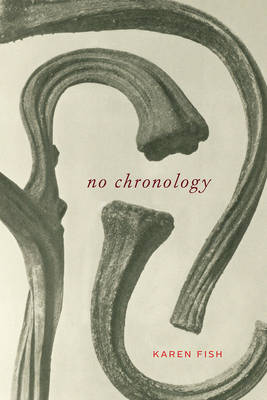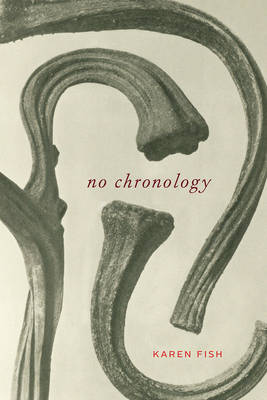
- Afhalen na 1 uur in een winkel met voorraad
- Gratis thuislevering in België vanaf € 30
- Ruim aanbod met 7 miljoen producten
- Afhalen na 1 uur in een winkel met voorraad
- Gratis thuislevering in België vanaf € 30
- Ruim aanbod met 7 miljoen producten
Zoeken
Omschrijving
In No Chronology, Karen Fish's third collection of poems, she investigates those moments when the boundary of everyday life merges with history, imagination, and art. Fish was trained as a visual artist, and this way of seeing is intrinsic to her approach to poetry. Fish's reflections on art and life speak to our common experiences, and her power to illuminate the subtle complexities of the world around us lies in her keen and compassionate observations. These poems invite us to join her in looking both at and beyond ourselves. The outside world vanishes. No help comes.
Imagine, staring into the sun, then,
how the clouds spread out and open like wallets
over a few corrugated roofs.
Throughout this collection, Fish seeks truths about memory and loss, shame and redemption. She faces uncomfortable questions arising from our individual and collective actions, asking whether we are complicit in extinctions of species and how we reduce the humanity of prisoners by tying their identity to their crime. But these poems are also about naming life's particular joys: driving in spring, walking through the woods with dogs, or hearing a child speak through the mail slot. They offer a space to encounter lyrical meditation as an experience in and of itself.
Imagine, staring into the sun, then,
how the clouds spread out and open like wallets
over a few corrugated roofs.
Throughout this collection, Fish seeks truths about memory and loss, shame and redemption. She faces uncomfortable questions arising from our individual and collective actions, asking whether we are complicit in extinctions of species and how we reduce the humanity of prisoners by tying their identity to their crime. But these poems are also about naming life's particular joys: driving in spring, walking through the woods with dogs, or hearing a child speak through the mail slot. They offer a space to encounter lyrical meditation as an experience in and of itself.
Specificaties
Betrokkenen
- Auteur(s):
- Uitgeverij:
Inhoud
- Aantal bladzijden:
- 88
- Taal:
- Engels
- Reeks:
Eigenschappen
- Productcode (EAN):
- 9780226768977
- Verschijningsdatum:
- 2/03/2021
- Uitvoering:
- Paperback
- Formaat:
- Trade paperback (VS)
- Afmetingen:
- 150 mm x 224 mm
- Gewicht:
- 140 g

Alleen bij Standaard Boekhandel
+ 62 punten op je klantenkaart van Standaard Boekhandel
Beoordelingen
We publiceren alleen reviews die voldoen aan de voorwaarden voor reviews. Bekijk onze voorwaarden voor reviews.











